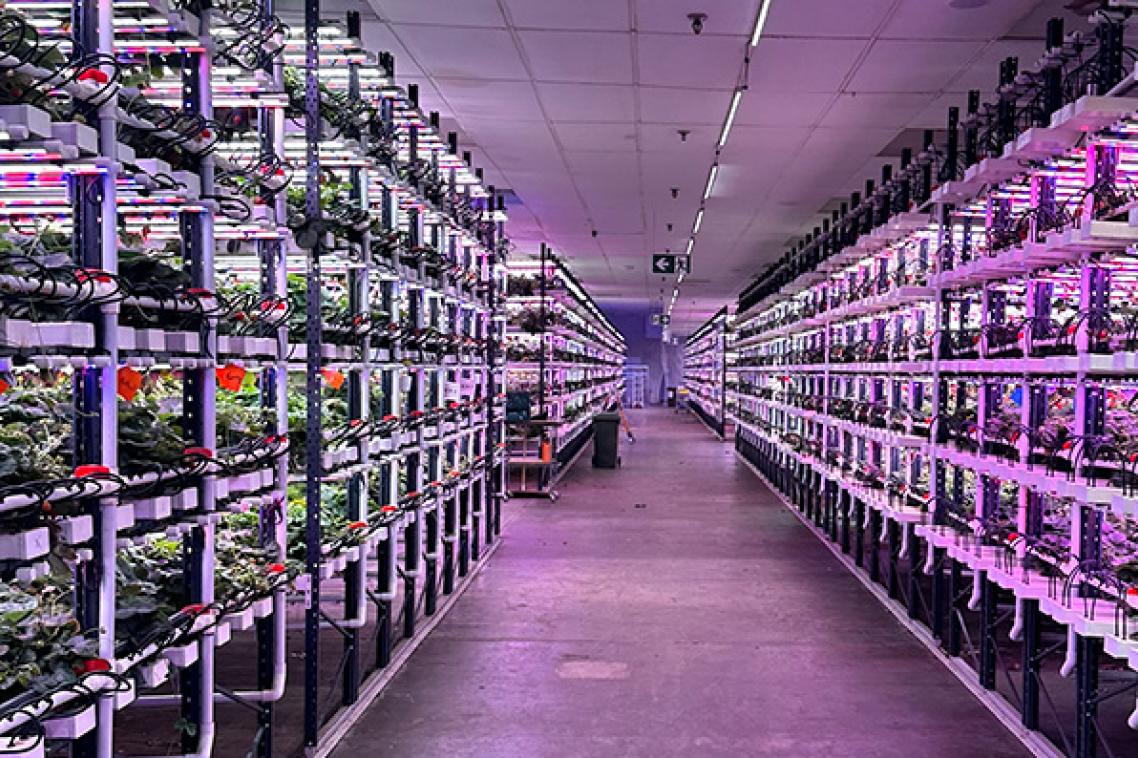Lighting a path to the future of vertical farming

Technology and improved plant science are the keys to indoor farming contributing to global food needs, according to The University of Queensland’s Professor of Protected Cropping.
Professor Paul Gauthier is among a global group of experts suggesting ways for controlled environment farming to reach its potential.
“Vertical farms grow crops indoors in stacked layers and provide consistent yield and crop quality but they use a tremendous amount of costly energy for light and air flow,” Professor Gauthier said.
“If we create a more dynamic environment that turns lights and sensors on and off during the day in line with the cycles of photosynthesis rather than leaving them on all the time, we could tap into cheaper energy at off peak times and still maximise the advantages of vertical farming.”
Professor Gauthier said technological solutions were just one way to make vertical farming more profitable and help it reach its potential.
“We need to think long-term and take a new approach to plant science,” he said.
“What we already know about how plants grow does not entirely apply to vertical farming situations which my research has already proven.
“I managed to get strawberries to produce 6 kilograms per plant when everybody was saying that the maximum you could produce in a greenhouse was 2 kilograms.
“I multiplied the strawberry yield by 3 by modifying the environment and pushing them to the limit.
“We have seen that as well with wheat where controlling the environment in a certain way increases yield by speeding up production, so instead of one or two harvests a year you could have five.
“I would like to see protected cropping or controlled environment agriculture treated as a separate discipline of plant science.
“If we are to increase food production by as much as 70 per cent by 2050, we need to look at things differently.
“That is what vertical farming allows us to do – we didn’t have this possibility before.”
The opinion piece was published in Frontiers in Science
Related articles

‘Holiday mode’: why our green habits vanish on vacation

Tests uncover unexpected humpback sensitivity to high-frequency noise
Media contact
UQ Communications
communications@uq.edu.au
+61 429 056 139
